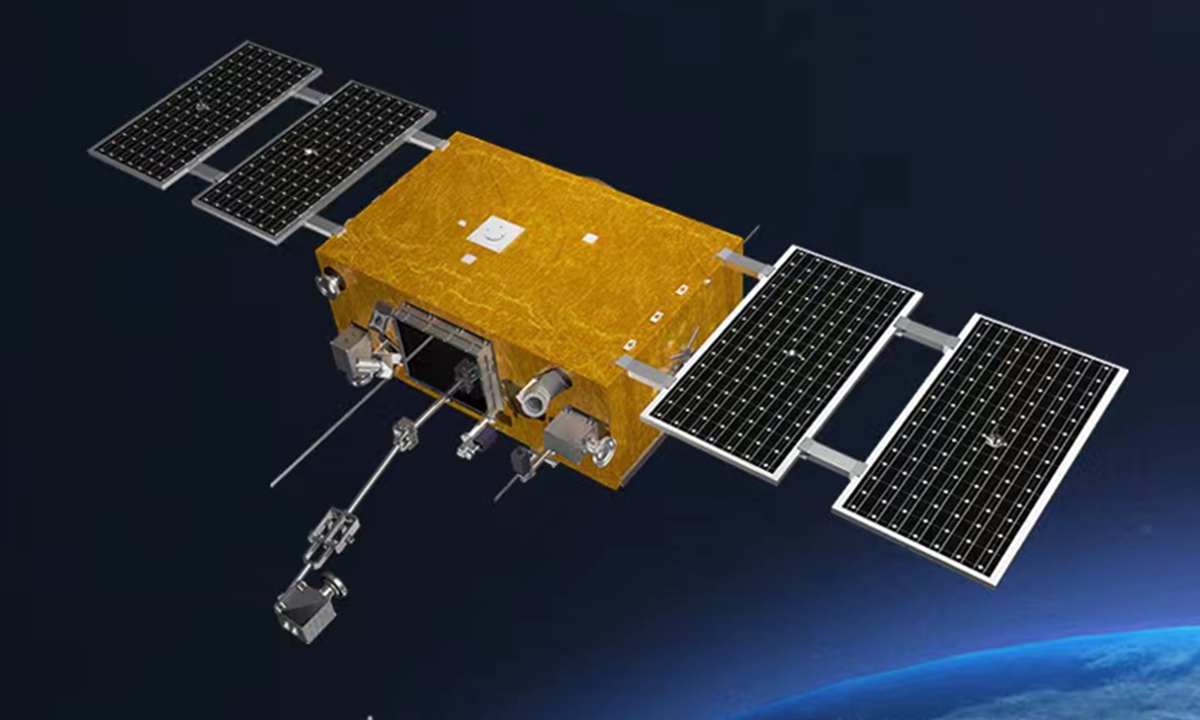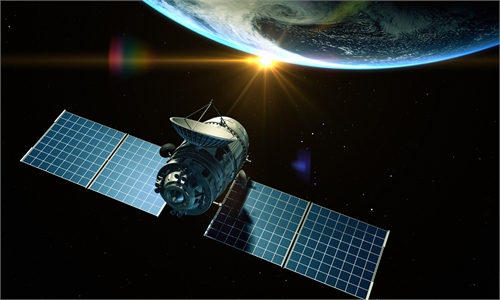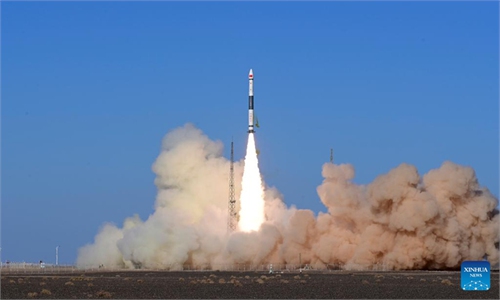
A satellite of Commsat Photo: Courtesy of Commsat
Three years after a livestreaming mentioned rocket sales on Chinese e-commerce sites which sparked wide discussion on China's social media, commercial satellites are now being sold on Taobao to the public -- a first in the world.
Sales of such high-end niche market products that seem remote from ordinary people's life will help popularize space technology among the masses, bringing space exploration closer to people. This trend also reflects the flourishing commercial space launch sector in China, industry observers told the Global Times.
Commsat, a Chinese commercial space startup, has put three commercial satellites on the shelves of its enterprise store on Taobao.com, priced starting from 1 million yuan ($145,140).
The cheapest satellite, weighing at less than 5 kilograms, looks like a magic cube made up of stacked circuit boards, and it is equipped with space cameras, magnetic torque devices and solar panels.
Targeted at school education of all levels, as well as research institutes and businesses, it could enable teen-aged students to operate satellites like space scientists, Commsat said.
Another satellite, weighing 200 kilograms, is priced at 30 million yuan. It can be sold as a whole or divided into multiple payloads that can be sold separately. Buyers of each part can share one common satellite platform.
"Selling satellites on an e-commerce platform is a forward-looking experiment. Initially, we will focus on science education and discovering customers. With the development of China's satellite internet industry, commercial satellites will be more widely used. It will truly take satellites from a niche to the public," Xie Tao, president of Commsat, told the Global Times on Thursday.
Chinese internet celebrity Luo Yonghao, best known as the founder of technology company Smartisan, will sell Commsat's satellites in his live-streaming studio on Friday.
All the satellite products will be manufactured in Commsat's Tangshan plant in North China's Hebei Province. Deliveries will take three to six months, the company said.
The Tangshan plant is the first commercial satellite factory approved by the National Development and Reform Commission, China's top economic planner. Following the first-phase operation this year, it could achieve annual production of 100 satellites.
"Building a satellite factory is meant to solve the problem of 'burning money for launching satellites,' and produce satellites like cars," Xie said.
The company is focused on optimizing the research and development process, replacing core stand-alone machines, advancing key technologies and mass production, which is expected to reduce the cost of domestic satellites by 60 percent within a few years.
The Beijing-based private company, funded by CASSTAR, is one of the early entrants in the domestic satellite internet sector.
Wang Junyi, an expert in the popularization of aerospace science, told the Global Times on Thursday that sensational sales of satellites on Taobao.com could well reflect that China's satellite internet sector is developing fast.
"Judging from the deployment pace of other countries, in less than 10 years, the satellites of multiple countries will be scattered throughout the low-Earth orbit, which is forcing us to change the traditional satellite manufacturing model to meet the demand of rapid networking," Wang said.
China has been pushing ahead the development of satellite-aided internet as it has great significance in communications for aviation and navigation and other uses.




